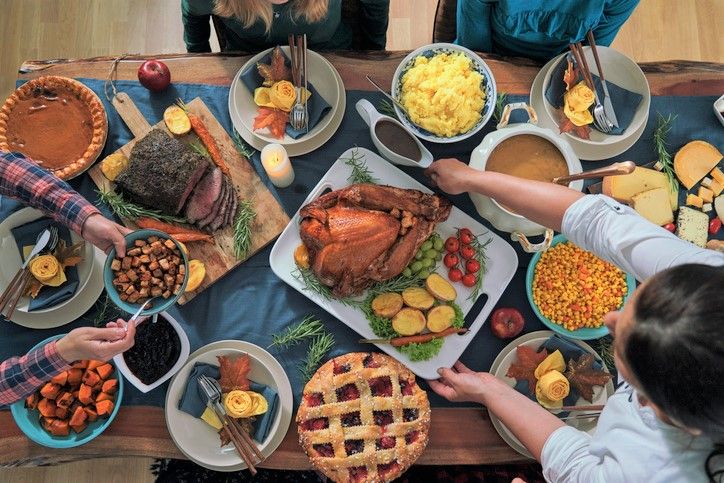Emergency and Trauma Care
Want to learn more about this at Kettering Health?
‘Tis the season to deck the halls, dash through the snow, and dine on delectable dishes at holiday get-togethers. Any festive feelings, though, can vanish faster than grandma’s famous pecan pie after someone enjoys eggnog left out for too long.
You want guests to leave full of good food and warm memories, not intestinal distress from food poisoning.
Whether you’re hosting a get-together or attending one, know how best to avoid food poisoning, and the signs of it, so you can enjoy a merry and bright holiday season.
What causes food poisoning?
Food poisoning happens when viruses, parasites, bacteria, or toxins contaminate food that is then ingested. Harmful bacteria from surfaces like an unwashed cutting board or that has grown on foods left out too long cause most outbreaks.
Everyone is at risk for food poisoning, but children, older people, pregnant women, and immunocompromised persons are at a greater risk of becoming seriously ill.
What are the symptoms?
Symptoms of food poisoning vary based on the type of bacteria and can occur immediately after consumption or hours later.
“Nausea, vomiting, diarrhea, and abdominal cramps predominate when it comes to food poisoning,” explained Dr. Marcus Romanello, chief medical officer at Kettering Health Hamilton.
“The diarrhea is often watery but can be bloody.” Dr. Romanello says. “Fever also can occur.”
Self-treat or seek help?
According to Dr. Romanello, at-home treatment is fine as long as the person who’s sick can tolerate clear liquids to stay hydrated and medicine to manage any discomfort or cramping.
However, if you or a loved one can’t keep fluids down, Dr. Romanello says to find medical help. Avoiding severe dehydration can help complications and conditions that can follow.
How to prevent food poisoning
Food poisoning can be prevented with four easy steps:
- Clean: Wash hands and surfaces often.
- Separate: Keep raw meat, seafood, poultry, and eggs separate from ready-to-eat foods.
- Cook: Ensure that food is cooked to the right temperature. This rule doesn’t just apply to meat and poultry; eggs, seafood, and even potatoes can cause illness if undercooked.
- Chill: Illness-causing bacteria can grow in many foods within two hours unless refrigerated.
Preparing for a holiday get-together requires a lot of attention and planning. As you’re focused on decorating and making sure everyone feels welcomed, be sure to have a plan to keep food safe and healthy. Your guests will thank you.









